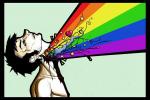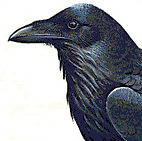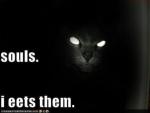Posted 28 August 2010 - 09:51 PM
I still remember the first time I looked at GOTM in Avon, Indiana on July, 16, 2005. How (and why) do I remember this? Because I saved the receipt. I look at it often, actually, to remind me just how far I and this series have come, and how much it's meant to all the people that have read it. I always enjoy talking to friends who like SF & F but who've never heard of the Malazan series. I always smile a little on the inside at the fact that while I want the series to be a household name that everyone associates with the genre, I enjoy being in a select group of people who've had the privilege to read, share, discuss and debate in detail the greatest fantasy series in our generation.
For so long, I looked at Glen Cook's Black Company books and said 'Geez, these have some of the most complex, continent-spanning stories I've ever read; if someone ever decided to fill in the gaps those books would be absolutely perfect, and like 500 pages.' Let me explain what I mean by this. Glen Cook's stories, in my opinion, were great at showing the muck and grime of the soldier's lives (as is well known and documented), but Mr. Cook didn't go into great detail about what actually happened in battles and over the years. For example, epic battles might be summarized in a few pages, and Croaker and the gang would travel great distances in only a few paragraphs. In the Dread Empire series, Bragi Ragnarson orders armies of men about and orchestrates campaigns that the audience only gets to see snippets of. I thoroughly enjoyed this because so much happened in a modest amount of pages, but the books focused on the macro-level sometimes.
So, in short, I was looking for Glen Cook meets George RR Martin. Though some may respectfully disagree with me, that's exactly what I found in the Malazan Book of the Fallen.
97 percent of the characters all have back-stories; detailed, in-depth and complex back-stories. Stop and think about just how many characters there are in this series. And each one is as well thought-out as most main characters in other novels. Though its already been said, it's true that every city, ruin, bridge, tree, object and person, is explored so thoroughly that by the end of the story you have a complete picture of who that person is (although many back stories are cleverly hidden until the time is right--for just the right amount of mystery). For my money, though the story is epic on a scale that I've never seen before, it's the characters that make this series so enduring. How can you care about a character unless you know where they come from, what they care about, what they disdain, and what they love? And Steven Erikson has given us some of the best, most admirable, and most deplorable characters ever. Think it's easy to run an army, look at Adjunct Tavore. Think its easy to kill a man and not be the same, look at Crokus. Think it's easy to defy destiny, look at Karsa Orlong. I could go on and on, but this is truly why the Malazan series just can't be topped. When gods, whose motivations and flaws stretch back eons, clash with mortals who will stop at nothing to survive, how can you help but read?
And that's also why I laugh when I read so many negative reviews of the series from people who complain that they couldn't follow it because there were too many characters or place names, or that the series was too slow, or didn't answer their questions all in one book. I laugh because that's precisely why we love this series. We haven't been spoon-fed the answers, we've had to figure them out for ourselves, had to track the plots of gods and men and see the worst and best of them both. People nowadays want their heroes complex, but few in number, strong, but flawed, and only the Malazan series has given us heroes, villains, and those shades of gray in between like none other.
And for that I truly thank Steven Erikson. He didn't re-invent the Sword and Sorcery genre, but he took it to a depth and a realism that no one has done before or since. Only a great man can take a story that spans millenia, with a cast of hundreds, and craft it so well, so quickly and with such dedication to the people that read it. Imagine him, thanking us, and the humility it takes to do that. He did the work, and we just sat back and enjoyed a ride that spanned more than a decade in our world, but a thousand lifetimes in his. Thank you for the ride.

 Help
Help























